Mindblown: a blog about philosophy.
-

Are Homocysteine Levels Genetic?
What is homocysteine? Homocysteine is an amino acid that plays a key role in important processes like making proteins. Vitamins B6, B12, and folate (also called B9) help convert homocysteine into other substances your body needs. When homocysteine levels get too high, it may indicate an increased risk of certain health conditions, such as cognitive…
-

Is Osteoporosis Genetic?
What is osteoporosis? Osteoporosis is a condition in which bone density becomes too low. This makes bones more fragile and prone to breaks (fractures). Bone is a living tissue that our bodies constantly replenish by breaking down old bone and replacing it with new bone. As we get older, we start to lose bone faster…
-

Emotional Eating
What is emotional eating? Food and emotions are often closely linked, such as having cake to celebrate a happy occasion or a favorite childhood meal that brings up warm feelings. But eating in response to emotions — called emotional eating — often involves eating high-calorie, unhealthy foods, despite not feeling physically hungry, and can result…
-
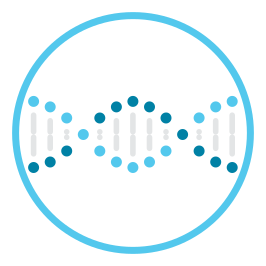
Is Parkinson’s Disease Genetic?
Explore Parkinson’s Disease and what your DNA can tell you Genetics of Parkinson’s disease risk Risk for Parkinson’s disease is influenced by genetics. In fact, the disease is associated with genetic variants (differences) in many genes. Two of the best studied genes associated with Parkinson’s disease are called LRRK2 and GBA (also known as GBA1).…
-
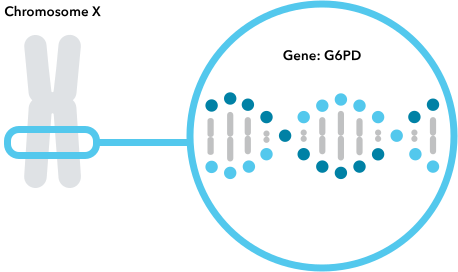
Is G6PD Deficiency Genetic?
Explore G6PD Deficiency and what your DNA can tell you Is G6PD deficiency genetic? G6PD deficiency is a genetic condition involving a gene called G6PD. The G6PD gene contains instructions for making an enzyme that plays a role in protecting red blood cells against damage. Certain genetic variants (differences) in the G6PD gene reduce the…
-
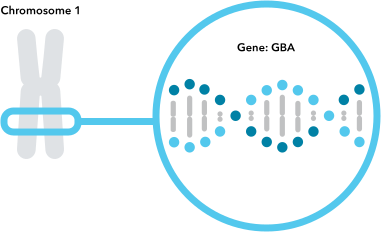
Gaucher Disease Type 1 & Genetics
Causes of Gaucher disease type 1 Gaucher disease type 1 is caused by variants (differences) in the GBA gene, also called GBA1. The GBA gene contains instructions for making an enzyme that breaks down a large, fatty molecule called glucocerebroside into simpler sugars and fats. Certain variants in the GBA gene prevent the enzyme from…
-
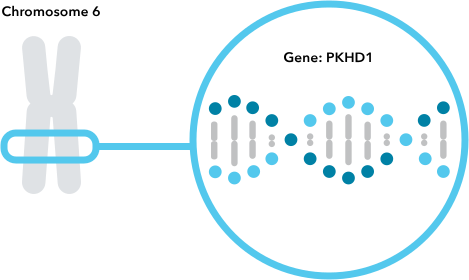
Autosomal Recessive Polycystic Kidney Disease
Causes of ARPKD ARPKD is most often caused by variants (differences) in the PKHD1 gene. The PKHD1 gene contains instructions for making a protein called fibrocystin that is primarily found in the kidneys. Although its exact function is unknown, it is thought to play an important role in the development and function of the kidneys.…
-
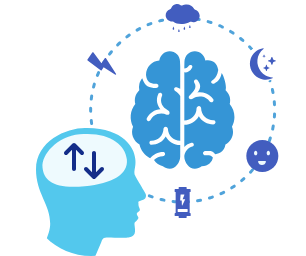
Is bipolar disorder genetic?
Explore bipolar disorder and what your DNA can tell you What is bipolar disorder? Everyone experiences ups and downs in life, but bipolar disorder causes extreme changes in mood and energy called mood episodes. The highs and lows of bipolar disorder – called “mania” and “depression” – cause unusually intense emotions and changes in activity,…
-

Is Insomnia Genetic?
Explore Insomnia and what your DNA can tell you What is insomnia? Insomnia is a sleep disorder that causes trouble sleeping. Everyone has a hard time sleeping from time to time, but insomnia causes persistent problems with falling asleep, staying asleep, and waking up too early. Insomnia can last a few days or weeks, especially…
-

Are Panic Attacks Genetic?
Explore Panic Attacks and what your DNA can tell you What are panic attacks? Panic attacks are episodes of intense fear with many physical symptoms. They can be triggered by certain situations or they can seem to occur out of the blue. They are caused by an activation of the body’s fight-or-flight response when there…
Got any book recommendations?